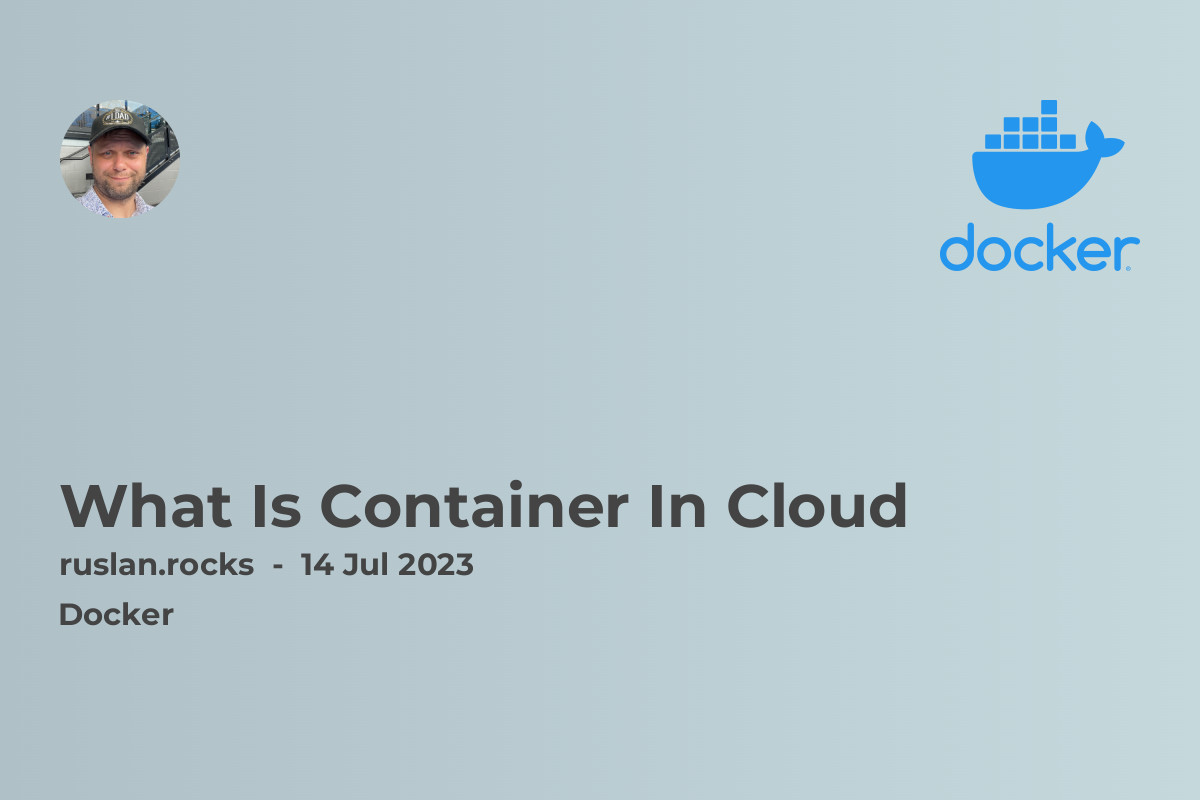
Containerization is one of the most popular trends in cloud computing today. But what exactly is a container? In simple terms, a container is a lightweight, standalone executable package that includes everything needed to run an application, including the code, runtime, system tools, system libraries, and settings. Containers provide a consistent and reliable environment for running applications, making them an essential component of cloud computing infrastructure.
Benefits of Containers
-
Portability: Containers are highly portable and can run on any platform that supports containerization, such as Kubernetes or Docker Swarm. This means that you can build an application once and run it across different environments without any modifications.
-
Scalability: Containers enable easy scaling of applications by allowing you to run multiple containers simultaneously. With container orchestration systems like Kubernetes, scaling can be automated based on the demand, ensuring optimal resource utilization.
-
Isolation: Containers provide a high level of isolation between applications, ensuring that each container has its own runtime environment and resources. This makes them ideal for running multiple applications on a single host without any interference.
-
Efficiency: Containers are lightweight and have minimal overhead compared to traditional virtual machines. They allow for faster startup times, faster deployment, and efficient resource utilization.
-
Flexibility: Containers are flexible and can be easily customized and modified to meet specific application requirements. They allow for the use of different programming languages, libraries, and frameworks within a single environment.
How Containers Work
Containers are based on operating system-level virtualization, where the host operating system abstracts and isolates the application and its dependencies from the underlying infrastructure. Each container runs as an isolated process with its own file system, networking, and process space.
Containerization technology, such as Docker, uses the concept of container images. An image is a read-only template that contains all the necessary files, libraries, and dependencies to run an application. Containers are created from these images and can be run, started, stopped, and deleted as needed.
The container runtime, such as Docker Engine or containerd, manages the container lifecycle, including starting and stopping containers, allocating resources, and managing networking and storage. It also provides security features to ensure that containers are isolated from each other and the host system.
The Role of Containers in Cloud Computing
Containers play a crucial role in cloud computing by providing a standardized and efficient way to package, distribute, and run applications. They offer a level of abstraction that simplifies application development, deployment, and management across various cloud environments.
In cloud environments, containers are often orchestrated by container orchestration platforms like Kubernetes. These platforms automate the management of containers, including scaling, load balancing, and container health monitoring. This helps organizations achieve high availability, fault tolerance, and scalability for their applications running in the cloud.
Related Topics
If you are interested in learning more about cloud computing and related topics, check out the following articles:
-
What Is Docker: Get an in-depth understanding of Docker, the leading containerization platform, and its features.
-
Introduction to Containerization: Learn more about the concept of containerization and how it revolutionizes application deployment.
-
Microservices Architecture Benefits: Explore the benefits of microservices architecture, which is closely tied to containerization.
-
Container Orchestration Tools Comparison: Compare different container orchestration tools like Kubernetes, Docker Swarm, and Nomad.
-
Infrastructure as Code: Discover the concept of infrastructure as code and how it enables the automation and management of cloud infrastructure.
Containers have become a fundamental building block in the world of cloud computing. They offer numerous benefits, including portability, scalability, isolation, efficiency, and flexibility. By leveraging containerization technology and container orchestration platforms, organizations can effectively deploy and manage applications in the cloud. So if you haven't already, it's time to jump on board the containerization train and take your cloud deployments to the next level.
